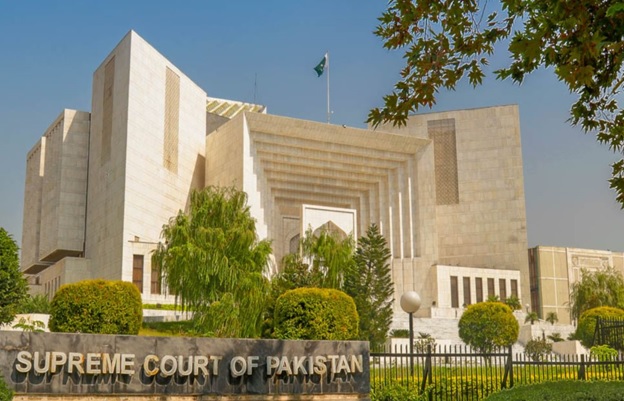
News
August 11 , 2023

The most talked-about ramification of the Supreme Court decision was that former premier Nawaz Sharif “faced a setback as his return was stalled in the short term” - Photo Pakistan Observer
Supreme Court Ruling on Review of Judgements Law — And Its Ramifications for Nawaz Sharif
In a verdict that analysts have termed a message to PML-N supremo Nawaz Sharif — whose return back to Pakistan was predicted as early as next month only a day earlier by his brother — the Supreme Court (SC) on Friday struck down the Supreme Court (Review of Judgements and Orders) Act 2023, which expands the scope of a review petition, terming it unconstitutional.
The top court termed the law “repugnant to and ultra vires the Constitution” while being beyond the legislative competence of Parliament. “It is accordingly struck down as null and void and of no legal effect,” it added.
The verdict comes two days after the National Assembly was dissolved , bringing the 16-month-long tenure of the outgoing coalition government to an end. The decision also followed a deepening rift between the judiciary and the government, which has on multiple occasions expressed a lack of trust in the three-member bench that announced the verdict.
Here’s what journalists and lawyers had to say about the apex court’s judgement.
Lawyer Usama Khawar said that the SC verdict has “multifaceted implications encompassing political considerations, inter-institutional power dynamics and safeguarding past judicial decisions”.
The judgement’s political and judicial implications were “significant, revealing the courts’ credibility, especially the Supreme Court’s”, he told Dawn.com.
Noting that the decision was being “scrutinized through political lenses, considering its wider political consequences and internal judicial politics”, Khawar stated that there were three key ramifications of it.
The first — and perhaps the most talked-about — was that former premier Nawaz Sharif “faced a setback as his return was stalled in the short term”.
“Secondly, the judgement underscores the power struggle between institutions, particularly the Supreme Court versus the Parliament. The Supreme Court reasserts its supremacy, disregarding parliamentary decisions and resisting curbs on its authority,” the lawyer said.
Stating the third ramification, Khawar noted that an “introspective aspect emerges”, with the outgoing Chief Justice of Pakistan Umar Ata Bandial and “aligned justices safeguarding their rulings from the successor’s potential influence”.
The lawyer said that the verdict “curtails the incoming CJP’s authority to revisit prior judgements” as it “solidifies the primacy of original benches and limits the ability to form new review benches”.
“This judgement will also make it difficult for the incoming CJP to undo the decision on the pending Supreme Court (Practice and Procedure) Bill, 2023.”
Meanwhile, anchorperson Shahzaib Khanzada stated that the timing of the ruling was of the utmost importance.
Speaking on Geo News, Khanzada said, “The timing [of the verdict], unfortunately, makes the matter more political.
“The [National] Assembly has been dissolved and the verdict has been pronounced the next day … as the assembly cannot do anything about it — it does not have any power anymore,” he added.
According to Khanzada, the SC order was in line with what was expected from the courts but “around three months had passed so questions were being raised regarding why wasn’t a decision announced yet”.
Taking to social media platform X — formerly known as Twitter — anchorperson Kamran Khan said, “The message is loud and clear: Nawaz Sharif is to remain lifetime disqualified from politics! It’s final!”
He said the verdict served as another “reminder” to Nawaz and to the PML-N that the ex-premier’s lifetime disqualification was “the decision of the ‘state’ and it’s here to stay”.
“Multiple attempts made by the last PML-N-led parliament to introduce legislation just to revive Nawaz Sharif’s political career must now be abandoned forever,” Khan added.
Journalist Hasnaat Malik wondered how expanding the review jurisdiction in matters decided under Article 184(3) was an “attack on the judiciary”.
“It’s necessary for ensuring a fair trial and due process. These matters should [be] decided by full court rather ‘like-minded judges’,” he said.
“No more homecoming for Nawaz, it seems! [Justice] Bandial strikes back,” said journalist Zarrar Khuhro. - Dawn
Courtesy Dawn
Back to Pakistanlink Home